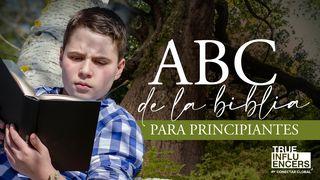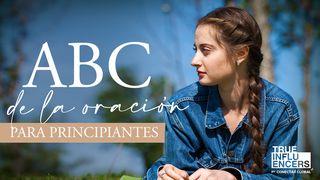Compassion: A 14-Day JourneyMuestra

Costly Sacrifices?
Christian financial stewardship leader Larry Burkett (1939-2003) observes the following about this story: "It's a sad commentary today that many Christians give into God's kingdom things they simply don't wantÉGod wants the best of what we have--not the leftovers." But may we take the issue further? Bible and homiletics professor Arthur Van Seters states:
The history of Israel is a history of a people constantly on the move to land or from land. But it is also a history of Yahweh, and Yahweh's promises, gifts, judgments, and forgiveness. Israel has no identity in the Old Testament without land, either promised or inherited. Land is integral to its understanding of its faith in Yahweh, who is seen as the giver of land. But when the people rule Yahweh's land by force they destroy Yahweh's gift and end up losing it. This, I believe, is the basic ingredient for understanding a stewardship view of land. Land is a gift freely given, but it is lost when it is controlled contrary to the will of the giver.
This stewardship view of land seems most clearly to have been accepted and understood as the Israelites settled into the land of Canaan at the beginning. According to the theological history that tells us part of the story, we read of a statement by Yahweh, "The land is mine. You [Israel] are strangers and sojourners with me" (Lev 25:23). Yahweh is the giver who remains the owner. Israel is a people who are sojourners and not owners. So we have two elements: Yahweh the Giver shares the land with Yahweh's people, and these people who have shared Yahweh's land have to view the land as something to be shared, not only with Yahweh, but with one another. As sojourners they also knew that they only had the use of the land, and not some kind of ownership title to it. They inherit the land in order to use it. So the steward of the land, in the Old Testament sense, is one who uses the land and shares itÉ
In the period of the new MonarchyÉthe whole land system changedÉNow cities, especially Jerusalem and Samaria, stood over against the countryside. The kings developed vast building projects, and that required forced labor and taxes. When wars were fought, they were fought not by volunteer army but by a paid military. Very soon Israelite society had a two-class system with subdivisions. Five percent were the urban elite, subdivided into a political military elite and a ruling religious/cultural elite. The rest were the very poor, about thirty percent urban and sixty-five percent (who were even poorer) rural.
Araunah was obviously a member of the privileged class, as was Naboth in the contrasting story involving Ahab's seizure of his vineyard. Both of these stories have to do with justice--or the lack of it--on the part of the ruling elite dealing with the urban elite. While David's unwillingness to appropriate Araunah's threshing floor and then turn around and present it to God is a direct lesson here, the king's treatment of the poor in the land might be a better indicator of his overall stewardship.
Christian financial stewardship leader Larry Burkett (1939-2003) observes the following about this story: "It's a sad commentary today that many Christians give into God's kingdom things they simply don't wantÉGod wants the best of what we have--not the leftovers." But may we take the issue further? Bible and homiletics professor Arthur Van Seters states:
The history of Israel is a history of a people constantly on the move to land or from land. But it is also a history of Yahweh, and Yahweh's promises, gifts, judgments, and forgiveness. Israel has no identity in the Old Testament without land, either promised or inherited. Land is integral to its understanding of its faith in Yahweh, who is seen as the giver of land. But when the people rule Yahweh's land by force they destroy Yahweh's gift and end up losing it. This, I believe, is the basic ingredient for understanding a stewardship view of land. Land is a gift freely given, but it is lost when it is controlled contrary to the will of the giver.
This stewardship view of land seems most clearly to have been accepted and understood as the Israelites settled into the land of Canaan at the beginning. According to the theological history that tells us part of the story, we read of a statement by Yahweh, "The land is mine. You [Israel] are strangers and sojourners with me" (Lev 25:23). Yahweh is the giver who remains the owner. Israel is a people who are sojourners and not owners. So we have two elements: Yahweh the Giver shares the land with Yahweh's people, and these people who have shared Yahweh's land have to view the land as something to be shared, not only with Yahweh, but with one another. As sojourners they also knew that they only had the use of the land, and not some kind of ownership title to it. They inherit the land in order to use it. So the steward of the land, in the Old Testament sense, is one who uses the land and shares itÉ
In the period of the new MonarchyÉthe whole land system changedÉNow cities, especially Jerusalem and Samaria, stood over against the countryside. The kings developed vast building projects, and that required forced labor and taxes. When wars were fought, they were fought not by volunteer army but by a paid military. Very soon Israelite society had a two-class system with subdivisions. Five percent were the urban elite, subdivided into a political military elite and a ruling religious/cultural elite. The rest were the very poor, about thirty percent urban and sixty-five percent (who were even poorer) rural.
Araunah was obviously a member of the privileged class, as was Naboth in the contrasting story involving Ahab's seizure of his vineyard. Both of these stories have to do with justice--or the lack of it--on the part of the ruling elite dealing with the urban elite. While David's unwillingness to appropriate Araunah's threshing floor and then turn around and present it to God is a direct lesson here, the king's treatment of the poor in the land might be a better indicator of his overall stewardship.
Escritura
Acerca de este Plan

As Christ-followers, we’re called to demonstrate His compassion in our families, workplaces, communities, and world. Through brief Scripture passages and thought-provoking devotional content, this plan explores themes of justice, righteousness, stewardship, generosity, and grace and their relationship to compassion.
More
We'd like to thank The Stewardship Council, creators of the NIV Stewardship Study Bible, for the structure of the Compassion: A 14-Day Journey. For more information about this plan, the NIV Stewardship Study Bible, or hundreds of stewardship resources, please visit their site at http://www.stewardshipcouncil.net
Planes relacionados

1 Tesalonicenses: Modelos a imitar

Y...¡Adoremos!

Que El Mundo Crea

La Gracia. 7 Claves Para Vivir en Plenitud.

Disciplinas Espirituales

Chispas De Aquí Y De Allá

ABC De La Biblia Para Principiantes

¡Levántate! 7 Claves Para Levantarte Y Seguir.
